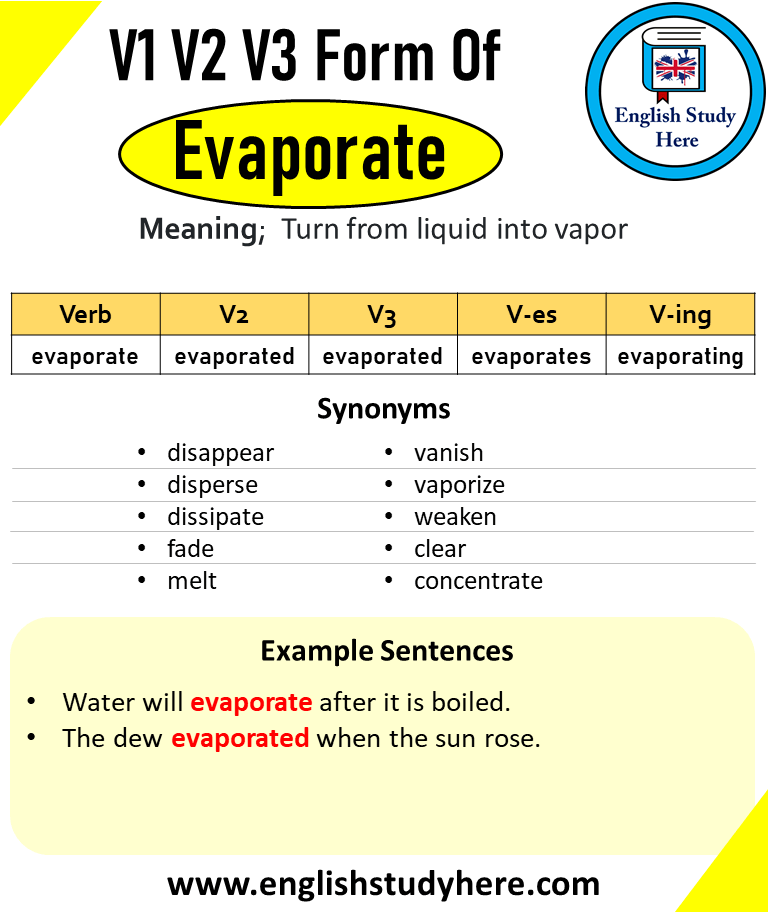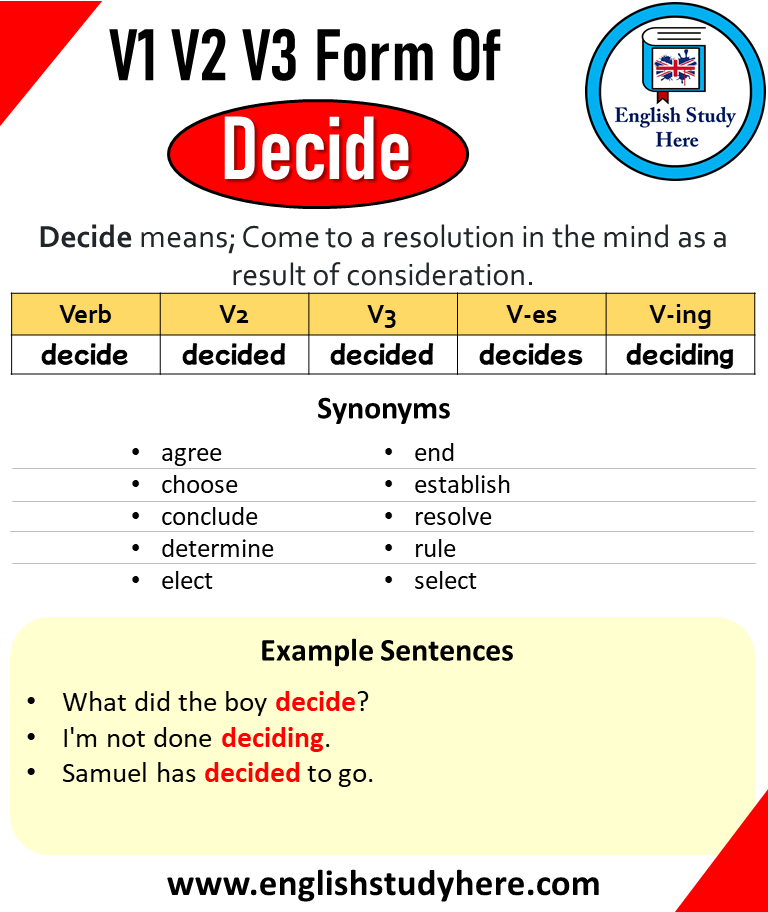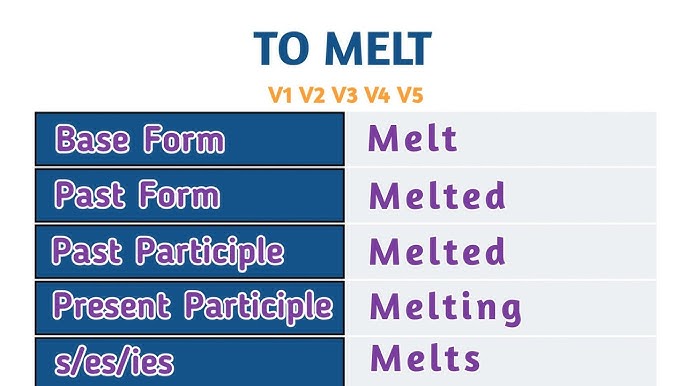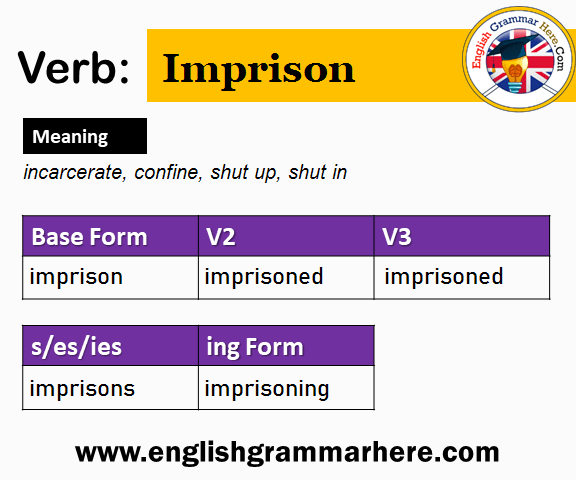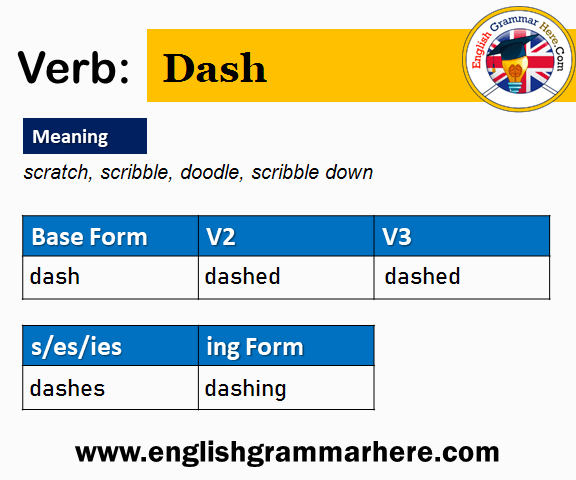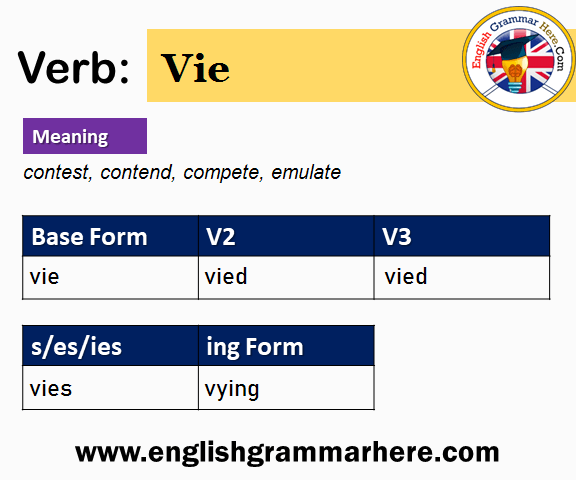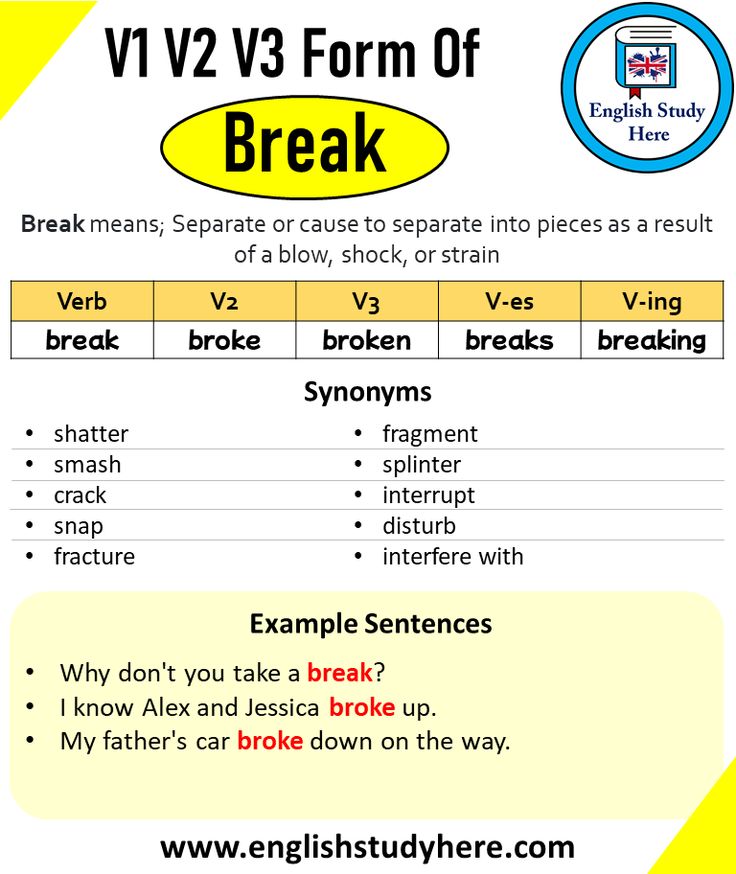Evaporate Past And Past Participle Form V1 V2 V3 V4 V5 Form of Evaporate
Are you curious about the different forms of the verb “evaporate” and how to use them correctly in your writing? Understanding verb forms is crucial for mastering any language, and English is no exception.
Whether you’re a student, a writer, or someone who simply loves to perfect their language skills, knowing the past and past participle forms of verbs can enhance your communication. We’ll delve into the V1, V2, V3, V4, and V5 forms of “evaporate”, giving you a clear and simple guide to using each form accurately.
Stay with us, and by the end of this read, you’ll have a solid grasp on how to confidently incorporate these verb forms into your everyday language, ensuring your sentences flow seamlessly. Let’s make learning fun and rewarding!

Credit: englishgrammarhere.com
Evaporate In Different Verb Forms
| Form | Verb |
|---|---|
| V1 | Evaporate |
| V2 | Evaporated |
| V3 | Evaporated |
| V4 | Evaporating |
| V5 | Evaporates |
The verb “evaporate” is simple. It changes form in sentences. In the present, we say “evaporate.” For past actions, use “evaporated.” Actions that happened earlier also use “evaporated.” When something is happening now, it is “evaporating.” For singular subjects, use “evaporates.” These forms help us talk about actions clearly.
Past And Past Participle Forms
The word “evaporate” changes in different sentences. These changes are called verb forms. The basic form is called V1, which is “evaporate”. The past form, V2, is “evaporated”. This form shows actions in the past. The past participle, V3, is also “evaporated”. It is used with “has” or “have”. V4 is “evaporating”. It shows something happening now. Finally, V5 is “evaporates”. It shows things that happen often.
Here is a table to help understand these forms:
| Form | Word |
|---|---|
| V1 | Evaporate |
| V2 | Evaporated |
| V3 | Evaporated |
| V4 | Evaporating |
| V5 | Evaporates |
Usage Of Evaporate In Sentences
The water will evaporateif left in the sun. Rainwater can evaporatequickly on hot days. The puddles evaporatedafter the storm. His patience evaporateswhen annoyed. The liquid has evaporatedfrom the bowl.
She evaporatedthe excess moisture from the soil. The heat evaporatedthe water overnight. The steam evaporatedfrom the pot. The lake evaporatedduring the dry season. The rainwater evaporatedfrom the roof.
Water is evaporatingfrom the surface. Steam was evaporatingfrom the hot soup. The sun will evaporatethe dew by noon. The puddles are evaporatingunder the sun. The liquid will evaporatesoon.
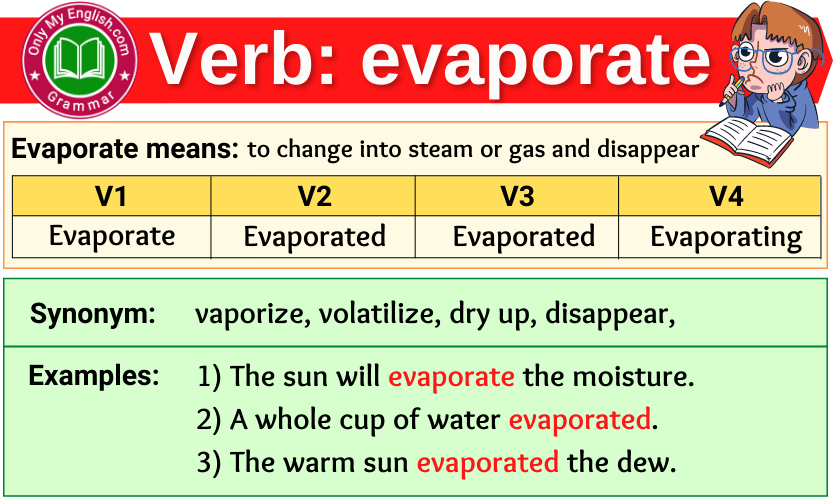
Credit: onlymyenglish.com

Credit: englishstudyhere.com
Conclusion
Understanding the forms of “evaporate” enhances your language skills. Practice using the past and past participle forms regularly. This strengthens your grasp of English verbs. The V1, V2, V3, V4, V5 forms provide a comprehensive view. They help in constructing correct sentences.
This knowledge aids in both writing and speaking. Over time, these forms will become second nature. Remember, practice makes perfect. Use this guide to improve your English fluency. Each step builds confidence and comprehension. Keep learning and enjoy your language journey.
